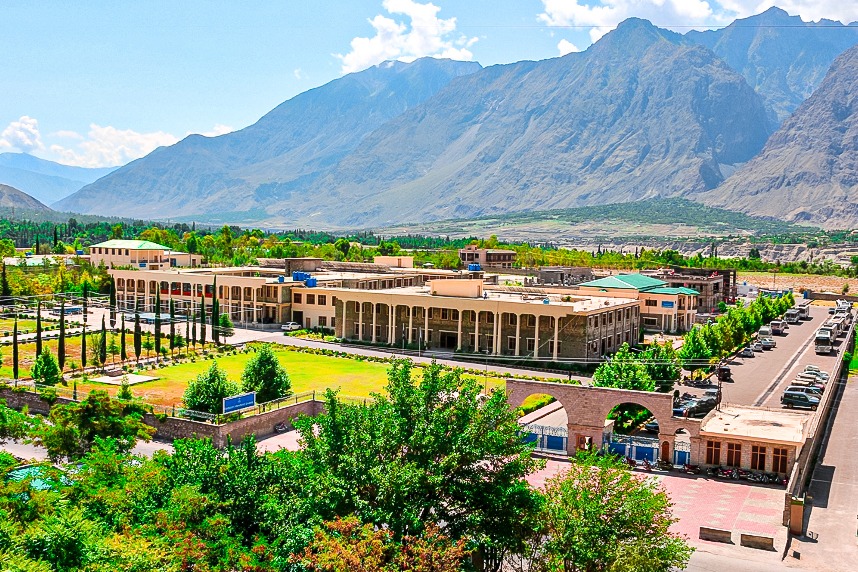- Web Desk
- 17 Minutes ago
KIU faces imminent shutdown
-

- Hum News
- Aug 02, 2023

ISLAMABAD: The Karakoram International University (KIU), a public university in Gilgit-Baltistan, is on the brink of an imminent shutdown as it grapples with a severe financial crisis, according to credible sources within the institution.
The university, which was established in 2002 under the University Act 2002, has been hit by a series of setbacks that have crippled its finances, faculty members and insiders told Hum News.
One of the main reasons for the crisis was the Higher Education Commission’s (HEC) decision to terminate the regular and private degree programmes offered by the university, such as BEd, BA, BSc, and two-year master’s programmes, without proper planning. This resulted in an annual loss of about Rs100 million for the university.
Another blow came from the HEC’s decision to set up three KIU campuses in Hunza, Ghizer, and Diamer districts and later merge them with the main campus. This increased the costs of running the university, especially on the Diamer campus, which faced security and logistical challenges.
The university also suffered from the Gilgit-Baltistan government’s decision to disaffiliate its colleges and schools from KIU’s examination department and link them with the Federal Board of Intermediate and Secondary Education (FBISE) Islamabad. This created a further annual shortfall of about Rs100 million for the university, without any alternative funding support from the government.
PHEC to merge education boards across Punjab
The university itself made some mistakes as well. It launched various non-essential and unpopular degree programmes in different fields, such as Mining Engineering and Earth Sciences, and established unnecessary “learning centers” in Yasin and Gahkuch. These moves added to the university’s budgetary pressure.
To prevent the imminent closure of the university, experts and KIU staff suggested some measures to improve its financial situation. These included amending the KIU Act of 2008 to involve the Gilgit-Baltistan government in the university’s statutory bodies like other public universities in the country.
They also proposed appointing the governor of Gilgit-Baltistan as Chancellor to ensure the university receives annual provincial grants and other assistance.
They also recommended either phasing out or providing additional funding for the three KIU campuses, discontinuing non-essential degree programmes, shutting down high-cost camp offices in Islamabad and Skardu, renting out or leasing out university-owned facilities such as auditoriums, guest houses, and shopping plaza land, relocating or laying off staff from the examination department and the three campuses, and seeking more budget allocation and special grants from the HEC.
They also said that ensuring elected representation in the Academic Council, Syndicate, and Senate of the university was crucial, and that the practice of ‘pick and choose’ should be discarded.
Lastly, they said, the HEC should allocate augmented budgets and offer special grants as compensation for terminated programs.
KIU Director Media Mir Tazeem told Hum News that they had been constantly urging the HEC to take appropriate steps to address the financial problems faced by the university. “The situation is turning from bad to worse and there is an urgent need to resolve the issue,” he said.
When approached for comment, HEC senior official Ayesha Ikram stated, “the HEC has released funds for the first quarter. The university administration should provide further clarification on this issue.”
HEC Director Media Waseem Khaliqdad said “the HEC is providing funds to all universities in line with the set criterion. The universities should utilise the funds wisely to meet their expenditures. But the universities also secure funds from the provincial governments. If they face financial problems these can also approach them to address their issues.”
He said that the HEC has released the first-quarter grant to the Karakuram International University. “The HEC has a formula-based funding mechanism for the distribution of funds and recurring grant of all public sector universities in the country is disbursed accordingly.”




